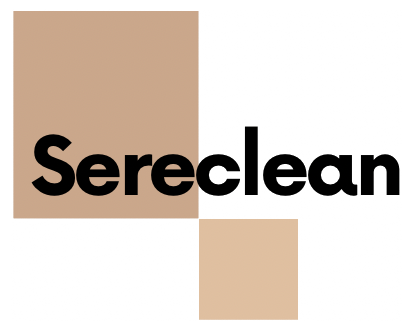10 Surprising Things That Can Affect Your Oral Health (NEW)

When it comes to maintaining a healthy smile, we often focus on brushing, flossing, and regular dental visits. However, there are several surprising lifestyle factors that can have a significant impact on your teeth and gums. In this post, we’ll explore how stress, sleep, diet, and other unexpected influences affect your oral health and why maintaining proper tooth alignment with the help of clear aligners is essential for long-term health.
1. Stress: The Silent Culprit Behind Teeth Grinding
How It Affects Your Oral Health: Stress is one of the most overlooked factors affecting your oral health. When you're stressed, you may subconsciously grind your teeth, a condition known as bruxism. This can lead to worn-down enamel, tooth fractures, and even jaw pain.
What You Can Do: If you experience teeth grinding, consider wearing a nightguard to protect your teeth while you sleep. Managing stress through relaxation techniques like meditation or yoga can also help reduce the pressure on your teeth.
2. Sleep: The Link Between Sleep Apnea and Gum Disease
How It Affects Your Oral Health: Poor sleep, particularly due to sleep apnea, can contribute to gum disease. People with sleep apnea often breathe through their mouth, which can dry out the gums and increase the risk of bacterial infections, leading to gingivitis or periodontal disease.
What You Can Do: If you suspect you have sleep apnea, seek professional help for a diagnosis and consider treatments such as CPAP (Continuous Positive Airway Pressure) therapy to improve your sleep quality and protect your gums.
3. Diet: Sugar’s Effect on Your Teeth
How It Affects Your Oral Health: We all know sugar is bad for your teeth, but it’s more than just the sugar in candy. Sugary foods and drinks create an acidic environment in the mouth, which can erode enamel and lead to cavities.
What You Can Do: Limit your intake of sugary snacks and drinks. Opt for healthier alternatives like vegetables, nuts, and dairy products that help protect your teeth from decay.
4. Dehydration: The Role of Saliva in Oral Health
How It Affects Your Oral Health: Dehydration leads to a dry mouth, which reduces the production of saliva. Saliva is essential for neutralizing acids in the mouth, washing away food particles, and preventing tooth decay. A lack of saliva can increase your risk of cavities and gum disease.
What You Can Do: Drink plenty of water throughout the day to keep your mouth hydrated. If you suffer from dry mouth, consider using a saliva substitute or chewing sugar-free gum to stimulate saliva production.
5. Alcohol Consumption: The Hidden Impact on Gum Health
How It Affects Your Oral Health: Excessive alcohol consumption can lead to a variety of oral health issues, including gum disease, dry mouth, and an increased risk of oral cancer. Alcohol dehydrates the body and reduces saliva production, leaving the gums more vulnerable to infection.
What You Can Do: Drink alcohol in moderation and make sure to stay hydrated. Rinsing your mouth with water after drinking alcohol can help mitigate its drying effects on the mouth.
6. Misaligned Teeth: Why Tooth Alignment Matters for Oral Health
How It Affects Your Oral Health: Misaligned teeth aren’t just a cosmetic issue—they can contribute to a variety of oral health problems. Crooked teeth can make it more difficult to clean certain areas of your mouth, leading to plaque buildup, cavities, and even gum disease. Misalignment can also cause jaw pain, headaches, and a higher risk of tooth wear due to uneven pressure during chewing.
What You Can Do: If your teeth are misaligned, consider investing in clear aligners to help straighten them. Using clear aligners like Invisalign is an effective way to gradually move your teeth into the correct position while maintaining a discreet, comfortable fit.
But don’t forget: clear aligners need to be cleaned regularly to remain effective and free from harmful bacteria. That's where the Sereclean Pod comes in. The Sereclean Pod uses ultrasonic cleaning technology to gently remove plaque, bacteria, and stains from your aligners, ensuring that your treatment progresses smoothly and your devices stay hygienic.
7. Smoking: The Major Risk Factor for Periodontal Disease
How It Affects Your Oral Health: Smoking is one of the leading causes of periodontal (gum) disease. It weakens your immune system, making it harder for your body to fight off gum infections. Smokers also tend to have more plaque buildup, which can lead to tooth decay and bad breath.
What You Can Do: Quitting smoking is the best thing you can do for your oral health. If you're trying to quit, seek professional support or join a smoking cessation program to reduce your risk of gum disease and tooth loss.
8. Medication Side Effects: Dry Mouth and Oral Health
How It Affects Your Oral Health: Many medications, including antihistamines, antidepressants, and blood pressure medications, can cause dry mouth as a side effect. A dry mouth leads to reduced saliva production, which can cause cavities, gum disease, and bad breath.
What You Can Do: If you take medications that cause dry mouth, talk to your dentist about solutions such as using a saliva substitute or switching to a different medication. Drinking plenty of water can also help alleviate symptoms.
9. Hormonal Changes: Pregnancy and Menopause Effects on Oral Health
How It Affects Your Oral Health: Hormonal fluctuations during pregnancy and menopause can impact your oral health. Pregnancy increases the risk of gingivitis, while menopause can cause dry mouth and a decrease in bone density, which may affect the health of your teeth.
What You Can Do: Maintain good oral hygiene and visit your dentist regularly to monitor your oral health during hormonal changes. If you're pregnant, be sure to inform your dentist, as certain dental procedures should be postponed.
10. Mental Health: Anxiety’s Effect on Oral Health
How It Affects Your Oral Health: Anxiety and depression can have a direct impact on your oral health. People with mental health conditions are more likely to skip brushing and flossing, increasing the risk of cavities and gum disease. Additionally, stress can exacerbate conditions like bruxism (teeth grinding).
What You Can Do: Take steps to manage your mental health through therapy, stress reduction techniques, and a healthy lifestyle. Prioritize oral hygiene by setting a routine and staying consistent.
Conclusion: Protect Your Smile by Managing Lifestyle Factors
Maintaining a healthy smile goes beyond brushing and flossing—it involves managing lifestyle factors like stress, diet, and sleep. Additionally, misaligned teeth can contribute to long-term dental issues, making tooth alignment a priority. Clear aligners are a great way to correct misalignment, but keeping them clean is just as important. The Sereclean Pod offers a convenient and effective solution to keep your aligners free from bacteria and plaque, ensuring your smile stays healthy and beautiful.
By being mindful of these surprising influences on your oral health and taking proactive steps, you can prevent dental issues and maintain a bright, healthy smile for years to come.


